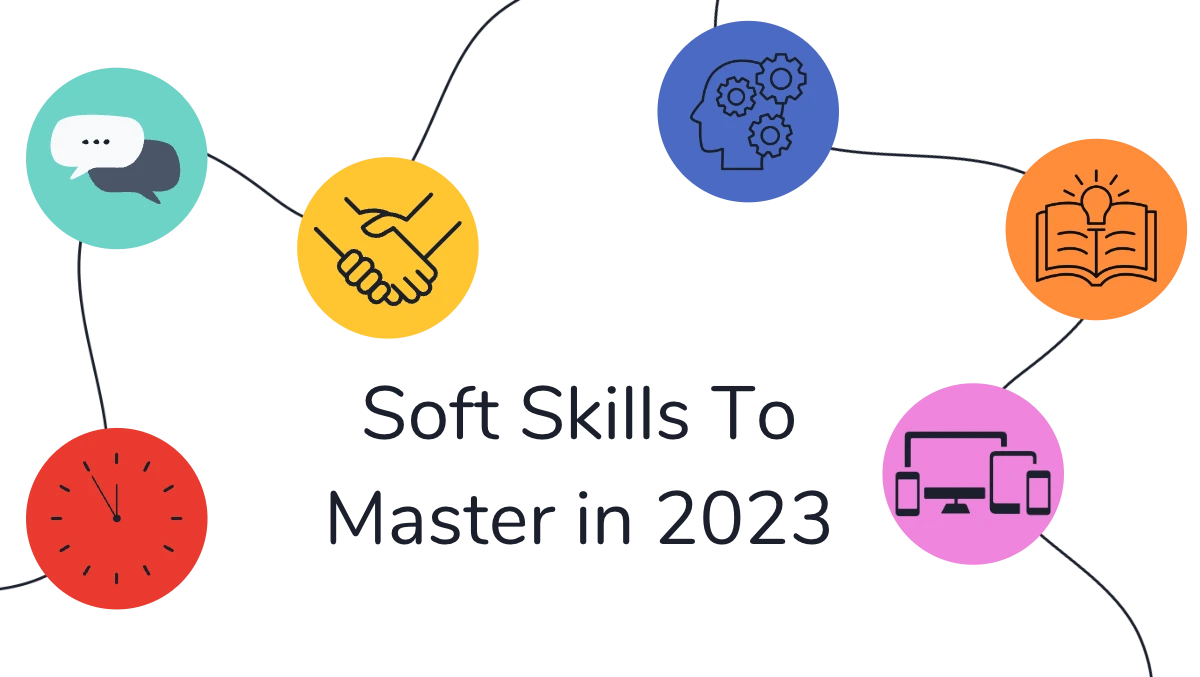In recent years, soft skills have become quite popular. It has become a crucial component for professionals across all fields.
While hard skills portray your experience and technical proficiency, soft skills reveal your capacity for career growth and advancement.
In addition, soft skills enable you to establish connections and find solutions so you may provide value to a group or organization.
In this article, we shall look into soft skills and their Importance to programmers.
Read Also: How to create engaging video content for social media in 2023
What are soft skills?
These abilities are more closely related to a person’s method of working than they are to the technical side—for instance, the person’s attention to detail or capacity for timely communication.
Soft skills are also called People skills; they assist you in communicating successfully, demonstrating professionalism, and developing business partnerships.
Technical skills are crucial, but so are soft skills. For example, consider a scenario where a business hires a highly skilled programmer but is also pedantic, disorganized, and lacking in communication abilities.
Most likely, that individual will not be able to complete tasks efficiently.
Businesses increasingly value soft skills because they promote a positive work environment where teams may complete projects while collaborating and working harmoniously.
Soft skills are crucial because they enable you to collaborate well with others. Connect with coworkers, communicate your ideas, get feedback, and reach a consensus using communication skills, cooperation, and adaptability.
Soft skills a programmer should possess in 2023
1. Communication and learning skills
Any tech expert will tell you that one of the essential soft skills for a programmer is communication. There can only be success if there is communication.
A software developer must be able to effectively and promptly communicate the project’s requirements, any
necessary revisions and project updates.
Therefore, more than simply being an expert in the technical area is required. There are various levels of communication. It covers those with the work team, clients, and even remote coworkers.
Communication requires a lot of patience and empathy. Also, a programmer must learn because the tech sector continually transforms daily.
Therefore, you can produce work of higher value and quality if you continue to learn new technology, tools, and techniques.
Read Also: How to optimize your website for voice search
2. Teamwork and organizational skills
Many program developers choose to operate independently and alone without being joined by a team.
Despite their talent, no one, least of all a programmer, can work alone.
Therefore, this category of profiles will always be linked to someone, such as a QA engineer or UX designer. As a result, a programmer must be able to work well in a team, communicate well, and delegate tasks.
It’s commonplace for programmers to work on many projects with different deadlines, and each project may have many elements.
It can be easier for them to finish all these projects effectively if they have excellent organizational abilities.
This can include setting priorities for their jobs and having a clear plan for achieving deadlines, but it can also mean organizing their computer and code.
Clean, organized programming is helpful for everyone who works with it, and a well-organized system makes it simpler for programmers to find the needed files.
For a project to be successful, a programming team must operate like a well-oiled machine.
3. Time management skills
Time management is crucial in every profession, but software developers’ work with planning and delivery dates makes it much more vital.
Someone unable to prioritize their responsibilities or manage their time slows the process and wastes time and resources.
Programmers can improve their work productivity by effectively managing their time. This may lessen tension and increase job satisfaction.
It also helps to stop putting off things. Due to the demanding and complicated nature of the software development process, procrastination is a common issue.
By prioritizing their work and breaking down larger jobs into smaller, more manageable pieces, deliberate time management enables developers to avoid procrastinating.
4. Self-awareness
A developer must be open-minded and attentive to listening to his coworkers, regardless of his confidence in his knowledge or understanding.
He needs to be open to new concepts and methods of operation so that he can benefit from them and add to the project.
Programmers need to be self-aware since it allows them to comprehend their emotions, actions, etc. Therefore, knowing your strengths, being truthful about your abilities, and many other things are essential.
Realizing your limitations will enable you to determine when you require assistance or more resources. This helps you to work effectively and avoid taking on more tasks than you can handle.
The soft skill of self-awareness can assist you in recognizing when you are feeling worried, overwhelmed, or furious. In addition, it helps to manage and control your emotions.
Self-awareness aids communication. Therefore, self-awareness is crucial because it enhances performance and productivity while enabling you to collaborate effectively.
5. Problem-Solving / Critical Thinking
Critical thinking and problem-solving are the two most important soft skills any programmer should possess.
These two soft talents, in particular, will significantly impact how any programmer would handle significant challenges among other soft skills.
The programming development process is sometimes a topsy-turvy one. There are ups and downs, and those times require programmers to provide solutions to any unforeseen issue.
The ability to think analytically and critically is crucial for software developers since it allows them to develop ideas and dissect topics to determine their causes and potential solutions.
Programmers should be on the lookout for issues both inside and outside the code. They will likely succeed in offering software development services if they can successfully solve highly sophisticated algorithms.
Read Also: The Dos and Don’ts of Email Marketing in 2023
6. Adaptability and flexibility skills
Software engineers must remain adaptable, enabling them to react quickly and effectively to contemporary technological, industry, and project needs changes.
A versatile developer is flexible, open-minded, and capable of adjusting to current circumstances, methodologies, and technology.
New languages and fashion trends are always emerging in the technology sector, which is constantly changing. For programmers, flexibility is essential, as it can help you in practically any career.
Even as a specialist, you should keep an open mind and be willing to acquire new techniques, languages, and abilities.
Your willingness to experiment with different operating systems and languages might significantly impact your programming career.
It is amazing how soft skills can make your work easier or more efficient when you deal with a coworker, client, or customer.
Benefits of soft skills
1. Enhances work longevity
Many businesses search for evidence that a candidate will stay with their organization long-term when hiring for a position.
Employers like your prospective longevity because they will have to spend less on finding a replacement. Employers might benefit from soft skills such as conflict resolution, dedication, and motivation.
However, your work ethic and professionalism are also crucial markers of employment duration, and they can help you stand out from other prospects.
2. It Aids in teamwork evaluation
If you’re applying for a position as part of a software development team, the hiring manager may consider your ability to operate in a group as part of your application.
Employers assess your teamwork and communication ability via your soft skills set. In addition, your teamwork skills are evaluated through your ability to work well with others.
3. It helps build and maintain long-lasting relationships
Soft skills not only assist with your professional interactions, but they also impact how well you deal with clients and business partners.
In addition, employers want staff they can rely on to represent the organization professionally and courteously.
4. Employers benefit from soft skills
Employers use soft skills to distinguish between candidates who are competent for a job and those who can exceed expectations by putting effort into their professional connections.
In addition, some skills, such as excellent customer service, are transferable across industries and companies.
5. It expands the professional network
Soft skills are essential for building and expanding your network and making professional relationships at work.
In addition, professionals with solid and soft skills have a curious mindset that helps them quickly investigate professional leads and gain market information.
Programmers with a solid professional network enjoy more business connections and career development.
Read Also: The ethics of using Artificial Intelligence (AI) in decision making
6. Time organization
Soft skills like time management help keep you organized at work. For example, a programmer that knows how to manage time is dependable.
Adhering strictly to deadlines will be easy for such an individual.
When combined with other soft skills like communication, organizational skills aid in developing trust among team members since they know they can count on you to guide them to the required data.
7. It helps to develop leadership capacity
A specific soft skill set can help you develop your leadership potential.
For example, excellent interpersonal and communication skills show that you can relate effectively with colleagues and clients and know how your actions and demeanor affect those around you.
These are crucial components of effective leadership. Employers prize soft skills because they are more complex than technical abilities and enable workers to adapt to new situations quickly.
Strong soft-skill individuals may evaluate leadership tactics to aid their team’s success and execute particular strategies for every situation.
8. It boosts confidence and self-assurance
You can tackle professional challenges with confidence if you have strong social skills. In professional settings, your confidence can aid you in influencing others and persuading them of your point of view.
Your confidence could persuade a potential employer to choose you over other candidates during a job interview.
In addition, you can more easily adjust to a new work environment and establish yourself as a crucial team member by using soft skills to boost your confidence.
9. It enhances the great professional reputation
Soft skills are crucial to establishing your professional brand. These abilities also enable you to enhance the standing of your employer.
For example, how you engage with customers and business partners might influence people’s perceptions of your firm and their desire to do business with you.
Your interpersonal effectiveness, the timeliness of your job, and your capacity to resolve disputes on behalf of your employer in a way that helps them establish a positive reputation all depend on your soft skills.
While some professions, such as customer service, are inextricably linked to soft skills, it is without a doubt that every domain employs soft skills.
At the end, these skills will not only make your employer-employee relationship a smooth one, but will help in a good output rate in your company.
You’re happy, your workers are happy, everyone is happy!

